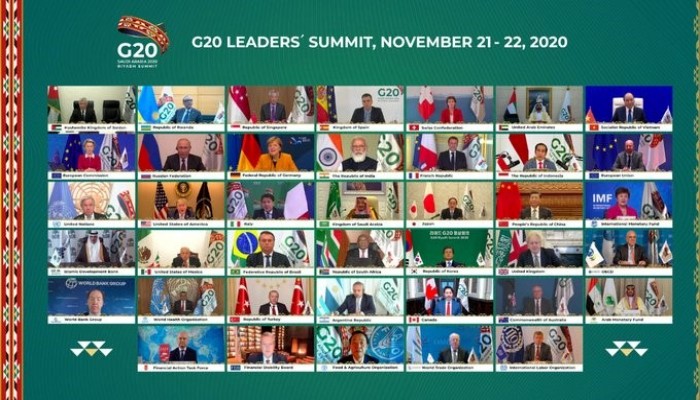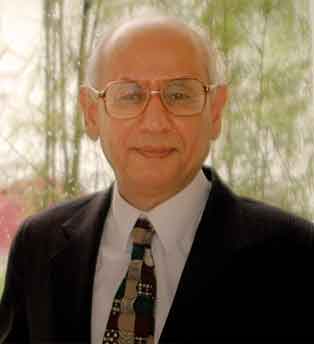PM Modi’s Suggestion for a New Global Index at 15th G20 Summit Deserves Serious Consideration
- In Economics
- 09:17 AM, Nov 24, 2020
- Mukul Asher
During the 15th G 20 Summit in Riyadh, Saudi Arabia, held on November 21-22, 2020, Prime Minister Narendra Modi made a suggestion for a new global index.
He also offered India’s Information Technology (IT) prowess to further develop digital facilities for more efficient functioning of the G20.
Currently, country hosting the summit during the year acts as a secretariat for the year. Therefore, there is no permanent secretariat and no continuity of functioning between summits. In 2021, Italy is to host the G20 Summit, Indonesia in 2022 followed by India in 2023.
Further development of the digital facilities could help make current arrangements more efficient. These facilities could in due course lay foundations for a permanent virtual digital technology-based secretariat
Suggested Global Index
The current measurement concepts and tools, whether GDP (Gross Domestic Product) or HDI (Human Development index), while useful to policymakers, have serious limitations, particularly with the rise of the digital economy and the post COVID-19 challenges facing the global economy. There are a host of specialized indexes, such as Ease of Doing Business, Logistics Index and many others.
But these do not capture in a consistent way the global challenges of the future. The proposed Global Index can supplement the current measures and indexes.
The Index comprises four key elements – creation of a vast talent pool; ensuring that technology reaches all segments of the society; transparency in systems of governance; and dealing with mother earth with a spirit of trusteeship.
- Creation of Vast Talent pool: The Prime Minister underscored that in the past few decades, while there has been an emphasis on capital and finance, the time has come to focus on multi-skilling and re-skilling to create a vast human talent pool. This would not only enhance dignity of citizens but would make citizens more resilient to face crises. “Work from Anywhere” has become increasingly acceptable, and new arrangements and measures are being developed.
- Technology Meeting Societal Needs: He also indicated that any assessment of new technology should be based on its impact on ease of living and quality of life. The control over technology and technology firms has been a very difficult challenge for policymakers globally, as rise of large digital-based firms such as Google, Facebook, Twitter and others suggests.
- Greater Transparency in Governance Systems: The Prime Minister argued that greater transparency in governance systems, both domestically and in international organizations, could motivate and inspire citizens to deal with shared challenges and enhance their confidence.
This is critical as trust in institutions, whether political parties, media, judiciary, judiciary, legislative branch, universities, and others across a wide range of countries has been eroded, and need to be restored.
- Dealing with Mother Earth with a Spirit of Trusteeship: Prime Minister Modi stressed on the principle of sustainability while dealing with the environment and nature. He emphasised the sustainable use of resources for a holistic and healthy lifestyle which could be measured by the per capita carbon footprint.
The Prime Minister stated India’s initiatives in this regard. India has taken several measures such as elimination of single-use plastics, expansion of forest cover, and restoring 26 million hectares of degraded land by 2030. He announced that India will meet the goal of 175 gigawatts of renewable energy well before the target date of 2022. India has set itself an ambitious target of generating 450 gigawatts of renewable energy by 2030. India, he said, would not only meet its Paris Accord targets but exceed them. He stressed that India is committed to relying on non-fossil fuels for 40% of its electricity needs by 2030.
Among other actions, the Prime Minister cited making LED lights popular which is saving 38 million tons of Carbon Dioxide Emissions per year and smoke-free kitchens being provided to 80 million households.
Climate Transparency, an international partnership of 14 research and non-governmental organizations, examined efforts to combat climate change among the G20 nations.
The Report found that India’s “fair Share” climate targets under the 2015 Paris Agreement, as well as the actions it has taken in the recent years since the Paris Accord, make it "compatible" with the upper goal of curbing global warming by 2 degrees Celsius by the end of the century.
India has promised to reduce its emissions intensity by 33-35% by 2030 and took actions in its energy, waste, industry, transport and forestry sectors, the report said.
However, the report noted that India continues to not be on track to reach the Paris Agreement's long-term 1.5 C target. India could be a "global leader" if it didn't build new coal fired power and phased out the use of coal by 20401.
PM Modi also noted that the International Solar Alliance (ISA), jointly founded by India and France in November 2015, based in Gurugram, India, is among the fastest growing international organizations, with 88 signatories. The ISA could contribute to reducing carbon foot-print as it plans to mobilise billions of dollars, train thousands of stake-holders, and promote research and development in renewable energy.
Challenges
The first task is to obtain the approval of the G20 group to in-principle include the work on developing the Global Index in its work plan.
Constructing a Global Index, incorporating the above four factors will be a very challenging task. It will require expertise in diverse fields, and longer-term focus and commitment of resources. KPIs (Key Performance indicators) for each of the four areas and their subcomponents (to be identified) will need to be developed. Reliable data sources will need to be identified; and large data analytics exercises conducted.
Constructing the initial version of the Global Index will be the beginning. It will need to be refined as comments are gathered, and as new global developments emerge in technology, climate, labour markets, and governance practices.
Selecting which countries to include in the Index will require diplomatic skills.
The Global Index will need to be regularly updated, and disseminated and communicated. All these are essential but complex tasks in the current and prospective global environment.
The above suggests that construction of Global Index will take time, even if in-principle approval is obtained. India could perhaps target completion of the preliminary version of the Index when it Chairs the G20 Summit in 2023.
Concluding Remarks
The proposal by Prime Minister Modi at the 15th G20 Summit in Riyadh to develop a Global index comprising creation of a vast talent pool; ensuring that technology reaches all segments of the society; transparency in systems of governance; and dealing with mother earth with a spirit of trusteeship; has much to commend it.
But operationalizing the index, sustaining it, and disseminating and communicating it to better understand and impact global policies will be a challenging task.
It is strongly urged that Indian think- tanks take a lead, in cooperation with think tanks of receptive G20 countries, in exploring webinars and other methods to explore how the idea of the proposed Global Index can be taken forward.
- https://www.climate-transparency.org/wp-content/uploads/2020/11/Climate-Transparency-Report-2020.pdf-accessed on 22 November 2020
Image provided by the author.







Comments